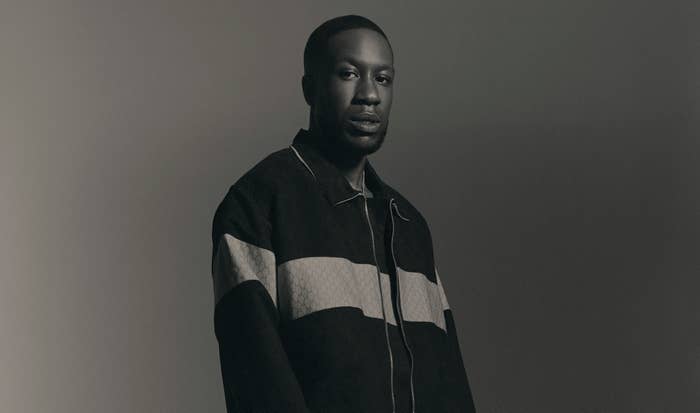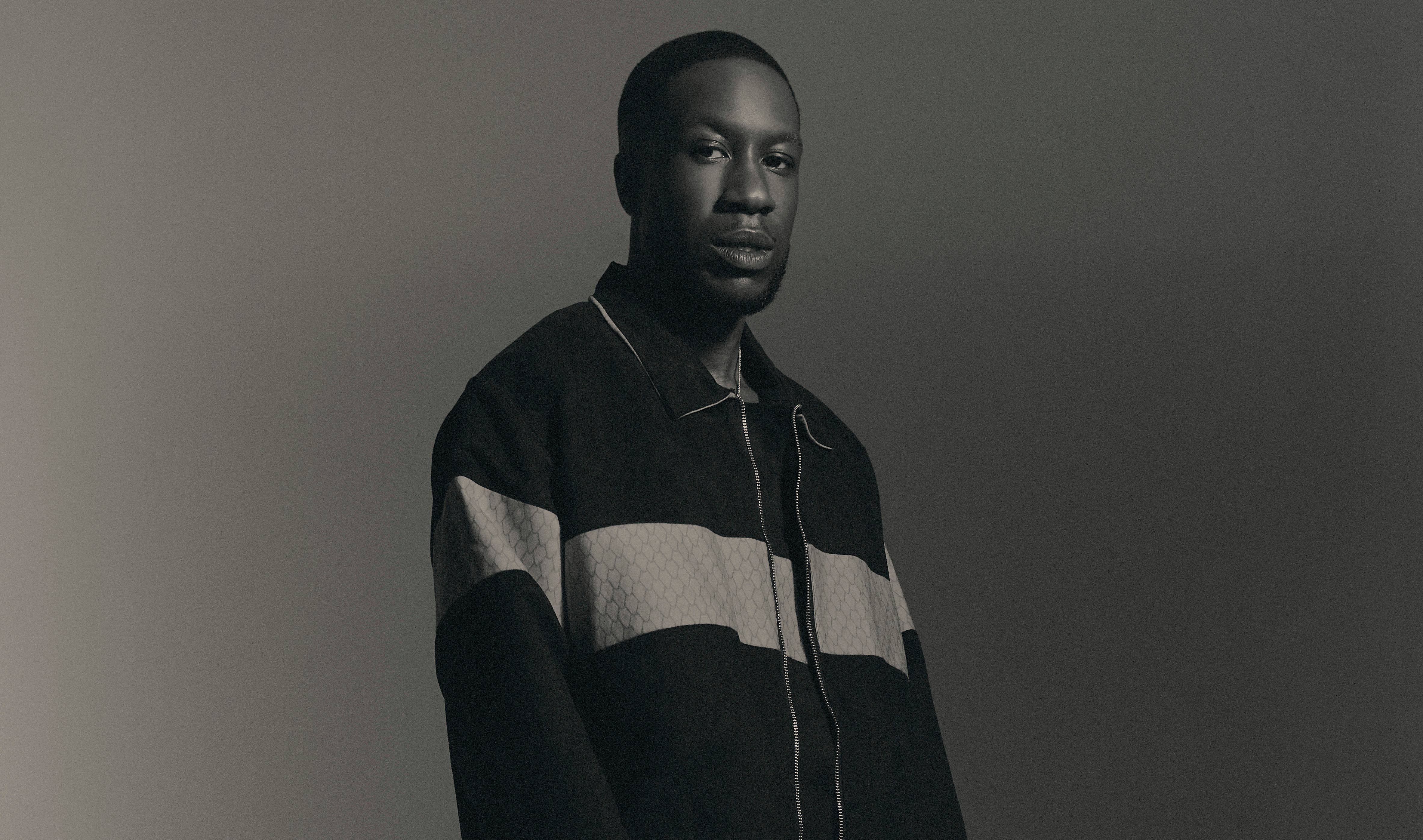
Prowling onto the scene in 2018, North London artist BenjiFlow premiered his debut single, “Deep End”, which served as a sleeper hit across the ‘net that year.
Racking up hundreds of thousands of streams in just a couple of months, the infectious R&B number is BenjiFlow’s most popular track to date; still, he’s been very successful in grasping audiences with his follow-up singles, “Somebody” and “Jolene”. Part of Benji’s appeal is his ability to seamlessly blend a range of genres into three-minute songs, and it still sound wholly unique and fresh to the ear. “Somebody”, for example, features R&B vocal arrangements paired with sonics that flirt with tango and calypso, and this has earned the singer a cult-like following.
Since 2018, BenjiFlow has managed to perform at the Ends Festival and Boiler Room, as well as selling out his debut headline show at Camden Assembly. Beyond his solo works, he also acts as a songwriter and producer, and has worked with the likes of Skepta and Avelino. He also produced most of Benergy, his newly released debut EP.
We caught up with the former grime MC to discuss his new project, Latin American music, Marvin Gaye’s influence on his work, and more.
“No one really took me seriously when I said I wanted to become a full artist, not just a producer.”
COMPLEX: How would you describe your music to a discerning ear?
With me, I’ve always said from the jump that I don’t decide what genre I sit in. I let everyone who listens to me decide what the music I make sits under. Music doesn’t have to necessarily be placed in one rigid box or specific genre—it can extend and bend and be whatever it wants to be. I’m personally all about feeling.
You’ve mentioned that you want your music to create a “feeling” or a “mood”. Unpack this methodology.
It means that there’s not one specific part of a song that I create that sticks out more than the other. The whole song is made to make you feel something overall, and I always make sure that this is the case. I’ll make the bassline fit in with the drums and drum knock, so much so that it makes the keys lead in such a way, and then the melody will fit in so well with everything that when you listen to everything, you’re not thinking about one particular element—more about the whole song and the impression it gave you. It’s kind of like Michael Jackson and his song “Don’t Stop ‘Til You Get Enough”—you don’t look at that and say, “The best thing about the song is the kick drum.” And that’s the approach I’m going for.
Both your parents are Jamaican, right? Does this heritage inform your sound in any way?
Coming from the Caribbean, the influence comes through in my melodies. When you hear music from there, you hear the melodies are way more spacious—they don’t like to put in five verses, a bridge, an outro and an intro. The melodies are kept simple and pleasing to the ear. When you hear an older-school Bob Marley record, you instantly realise that there’s not loads of verses in there and with the chorus, it’s so simple for the ear to catch up. That’s exactly what I want to feature in my music. Weirdly enough, everyone thinks I’m Nigerian because I’m there all the time. The music out there influences my sound, too, for sure.
Your debut single, “Deep End”, went on to gain a lot of popularity online, with thousands of streams from all across the world. Did you ever think it would become so successful in that sense?
You know what? That wasn’t intentional—at all. However, when it started to happen everywhere, I knew it was destined. It was different for it to happen so quickly, but I already knew how to act when it happened because inside, I always knew my music would expand. I said to myself, “Let’s smash this live, let’s kill it, let’s take it all the way to the top.” It was the most humbling feeling and gave me so much confidence.
You’re also part of a collective called Mini Kingz. Talk to us about that and what it stands for.
Mini Kingz is a collective of people who represent the “others”. We represent the people who just want to make music without having to do the gang stuff; we represent the people who aren’t afraid to say that they listen to Dolly Parton, Spice Girls or Britney Spears, as much as we do Jay-Z, Nas, Drake or Kanye West. We just want to enjoy the music and make music for the pure joy, without having to fit into things happening right this second. The love of the music is what gets us through the process of creating and sharing. Ragz [Originale] is the originator, then Cartae, Oscar #worldpeace, and then myself—they’re my extended family. I’ve known Ragz for years! We finally all caught up in 2014 and I haven’t left their side since.
While promoting your debut project Benergy, you tweeted that you produced a large part of the EP. What was the rationale behind this?
If I’m being honest, I’d have loved to not have had to produce every single record, but it wasn’t a choice at the time because there was simply no one else there to help out—just me and a few friends. To literally produce this myself and now have it out... I’m in a place where I’m way more open to collaborate with producers now. No one really took me seriously when I said I wanted to become a full artist, not just a producer, except for Ragz and a select few people. I wanted to protect my energy and work on getting this done, and just believe in myself to ensure this was what I wanted it to be.
There’s a heavy Afro-Caribbean and Latin American influence across the project, such as tango and calypso sounds. What made you look to those regions as sources of inspiration?
You’re 100% right with these. Regions such as Cuba have such a close connection to African sounds. There would be people in Africa, Yourba’s for example, who would pass on the music and play certain instruments. The rhythm in Cuban and Latin American music is incredible. I find their music so infectious, so I’m heavily influenced by it and want that to be evident in my songs. I listen to a lot of ‘70, ‘80s and ‘90s Brazilian music, too. The music is so untouched and beautiful.
How was it recording with your sister on “Somebody” for the EP?
[Laughs] It was so cool! I needed backing vocals, as the ones already on the song weren’t completely finished. So I phoned my sister up because she already had experience doing this for other artists, and in choirs. She came over one evening and laid it down in one take! The whole thing took half-an-hour; she’s speedy with these things.
Which song was the hardest to create on Benergy, and why?
“Can’t Lose”. I did that song twice and reworked the beat again. The original sounded like Wayne Wonder’s music and I said to myself, “Not yet. Let’s not go there yet.” [Laughs] I added a bit more rhythm to it. When Ragz heard the new version, he said: “I didn’t know you had so much going on in there.” I told him, “Yeah I’m just that guy.”
You’re also a multi-instrumentalist. What’s your favourite instrument to play?
I’m gonna say the bass-guitar. In the studio, because I watch Marvin Gaye’s rehearsal clips sometimes, one particular time I was watching rehearsals for the I Want You album and the bass player was playing so well, it made me fall in love with it. My favourite does change periodically though, depending on what’s going on. Right now, though, it’s the bass guitar.
Is it hard for genre-blenders in UK R&B and hip-hop to get institutional support?
Yes and no. It’s in part our responsibility to push this whole thing forward anyway. We can’t change popular culture, but it’s our responsibility to add something new to the table. We know that we won't grasp every single ear in one take, but that’s what we signed up for: the good, the bad, and the ugly. Me and my people have prepared for this already though—we’ve spoken about this. It’s not always the easiest way, but we’d rather take this path overall.

